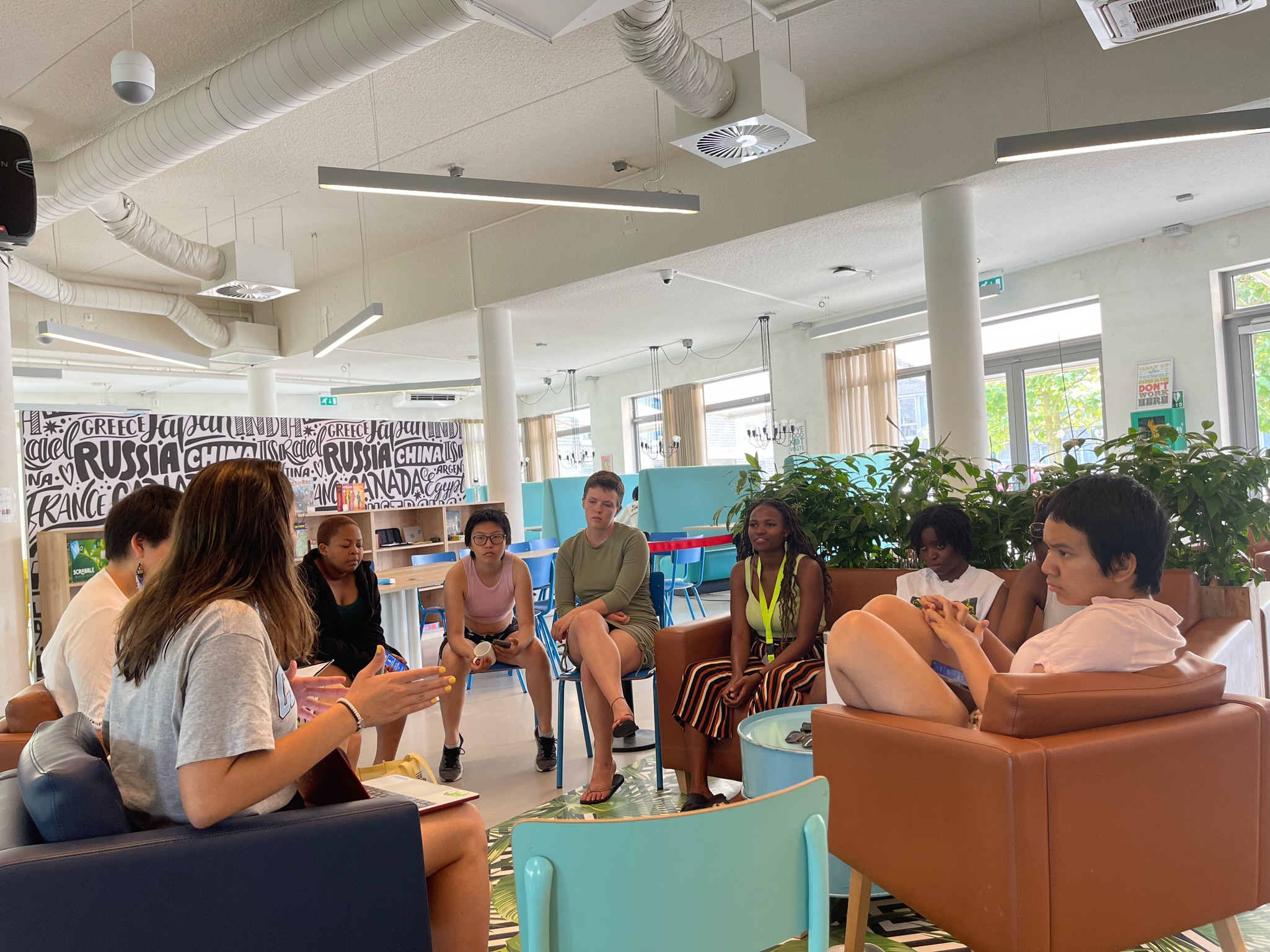Die With Zero Workshop
July 6, 2022
Please introduce yourselves and tell us what brought you to UWCM campus?
(Fridah): My name is Fridah Mbwaya. I was born and raised in Kenya and attended high school at the African Leadership Academy in Johannesburg, South Africa. Together with Maria, we came to UWCM to run a 4-day workshop based on ‘Die With Zero’ by Bill Perkins.
(Maria): Hello! My name is Maria Fernanda Silva, I am from Lima (Peru), and I just graduated from the University of North Carolina at Chapel Hill in the United States. Prior to my undergraduate studies, I attended UWC Adriatic from 2016 to 2018. While Fridah and I considered locations and schools for the “Die With Zero” workshop, I immediately thought of UWC campuses because I am a UWC Alumna. The UWCM team was super responsive and really liked the workshop series idea, this is how we ended up going to Maastricht.
What is Die with Zero about? Why do you think it is relevant for UWC students? Would you say it’s relevant also for alumni?
As Bill Perkins mentions it in his book, life is all about making choices. We face time, financial, and health constraints throughout our life. This will limit the opportunities we can engage in. The problem is most people live on “autopilot” and realise they are running out of time when it is usually too late. When we are 16 years old, we might not be able to afford a hiking trip to Alaska. Likewise, at age 75 we might have enough money but our health might impede us from doing so. Bill Perkins encourages us to think about what we want to achieve in our lives and plan strategically. A life without regret.
In summary, Die With Zero presents a great starting point for individuals of all ages to optimise their life’s purpose and stop living on autopilot. We both thought the book provided great insights into navigating our life choices and wanted to explore the nuances that are present in different communities. Through the workshop, we were able to expand the definition of happiness, to incorporate communal values like the influence of family on an individual’s sense of purpose.
What was it like to be on UWCM campus? What did you enjoy the most?
We truly enjoyed interacting with the students at UWCM. It was extremely inspiring to be around students who were committed to improving the state of the world. Our conversations, both in and outside of the classroom, were mutually beneficial. UWC students are an extremely ambitious and energetic group of students. During the four days we were in The Netherlands, DP1’s had multiple opportunities to learn more about the next phases of their lives and we learnt so much from their individual experiences. Hearing their perspectives on the DWZ philosophy was what we enjoyed the most.
Why do you spend your free time running these workshops? Why do you think it’s important?
We both attended international schools with very similar missions (African Leadership Academy and United World College). After our time in our high schools ended, we felt motivated and empowered to keep working towards a more equitable and sustainable world. However, once we started university, we felt overwhelmed by all the different activities, classes, clubs and initiatives we could take part in. The University of North Carolina has 30,000 students. Coming from a UWC campus that had 160 students, the change was abrupt. It was easy to lose focus and not know how to balance our academics with our other interests.
We decided to spend part of our summer after graduation carrying out this workshop series because reading “Die With Zero” earlier would have afforded us a more intentional life. We think this workshop is important because it challenges conventional advice on life planning, provides a clear framework to make life choices and emphasises the importance of time.
For Maria Fernanda, UWC was an incredibly transforming period of her life and this was the perfect opportunity to give back to the movement.
If alumni want to know more about DWZ what can they do?
Firstly, the book would be a great starting point. It provides key frameworks that are relevant for people of all ages and walks of life. Additionally, Bill Perkins releases mental models and newsletters periodically that expound on his concepts from the book. What Maria and I found extremely helpful was talking through the concepts displayed in the book with those around us. You can find these additional resources on the following website: https://www.diewithzerobook.com/



